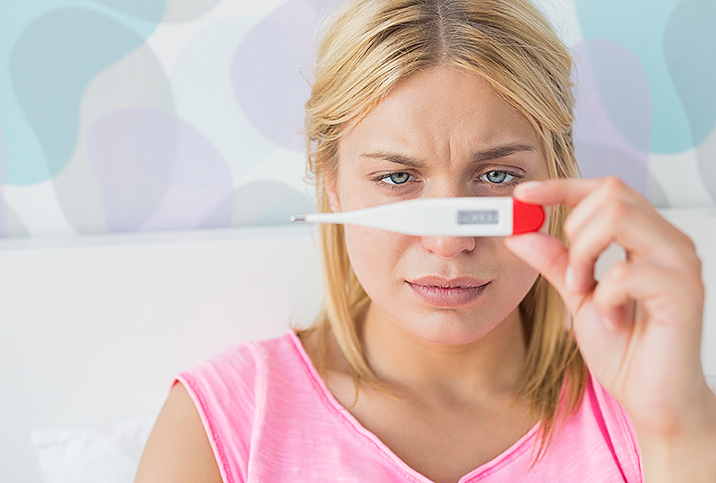What Happens If I Miss a Pill…or Two…or Three?

Forgetting to take your birth control pill can be a stressful event, especially if you worry about unwanted pregnancy. While popular and effective, oral contraceptives are easy to forget about after a late night or a missed refill. If you are reading this, and stressed about missing a pill—you are not alone.
According to a 2017 literature review in the European Journal of Contraception & Reproductive Health Care, forgetting to take one to three pills per cycle is a common issue. The review found that between 15 percent to 51 percent of oral contraceptive users reported problems with forgetting their pill. Reasons for this included age, inability to establish a routine, pill unavailability, side effects and loss of motivation.
Despite how easy it can be to forget to pop the pill, oral contraceptives remain a popular form of birth control. According to the Centers for Disease Control and Prevention (CDC), oral contraceptive pills are one of the most popular forms of birth control, with approximately 14 percent of women ages 15 to 49 using them. The pill is most used among younger women, with 21.6 percent of women ages 20 to 29 currently using the pill.
When used regularly, it is an effective form of birth control. The CDC reports the typical use failure rate of the hormonal birth control method is 7 percent.
There are two types of oral hormonal contraceptives: combination (estrogen and progestin) and progestin-only. (Progestin is a synthetic version of the body's naturally occurring hormone progesterone.) Combination pills are the most commonly prescribed form of birth control in the United States.
The combined birth control pill is the most effective of the two. According to OB-GYN and health coach Debra Shapiro, M.D., progestin-only pills are recommended for women who cannot have estrogen or who are breastfeeding.
Whether you are taking the combined pill or progestin pill, here's what you need to know about missing a pill or two...or three.
Is taking my birth control pill every day really important?
Yes, taking your oral contraception regularly is extremely important, particularly if your goal is to prevent pregnancy.
However, while taking the pill every day is important, taking it at the same time each day isn't as big of a deal. Sarah Yamaguchi, M.D., a Los Angeles–based OB-GYN, explained the pill doesn't have to be taken at exactly the same time each day if it's a combination (estrogen and progestin pill), but you do need to take it in a tighter window if it's a progestin-only pill.
"That being said, some patients will get spotting if they don't take their pill at the same time every day (but it's still preventing pregnancy)," Yamaguchi said.
However, Shapiro added, it's important to know taking any type of oral birth control is most effective when taken at the same time each day, regularly.
So, you missed one pill...
If your missed pill is a combination pill, Shapiro recommends taking the missed pill as soon as you remember. Then, continue to take your pills at your normally scheduled time.
According to Yamaguchi, this is only for combined estrogen and progestin pills. "If you miss more than one pill, then you will need to use a backup method," Yamaguchi added.
The CDC has a reference sheet explaining recommended action after late or missed combined oral contraceptives. If you notice you missed a pill within 48 hours, no extra contraceptive protection is needed.
It's also a good idea to consult your patient information handout that comes with your birth control prescription or call your healthcare provider to assist you with your individual case.
You missed two...three...or seven
While missing one pill isn't a big deal, missing multiple pills might cause some problems if you are looking to avoid pregnancy. However, you should still take the most recent missed pill as soon as possible. "If you miss two pills, take two pills for two days and use a backup method of protection," Shapiro advised.
To avoid pregnancy, backup contraceptives, such as condoms, should be used, or intercourse should be avoided until the hormonal birth control has been taken for seven consecutive days.
Hormonal birth control works by suppressing ovulation. "If you are consistently missing pills, then you might not be suppressing your ovulation, so it has a higher failure rate," Yamaguchi explained.
This means if hormonal contraceptives were missed in the first week and unprotected intercourse occurred in the previous five days, there is a higher chance of pregnancy. In this instance, the CDC recommends considering an emergency contraceptive to avoid unwanted pregnancy.
If you miss three pills or more, there is a high chance your natural hormones will be stimulated. In this case, Shapiro recommends discontinuing the use of your current pills until your cycle restarts. Once your period begins, start taking a new pack of your pills. It's important to understand there is a higher risk of pregnancy during this time. Use extra protection if you decide to have intercourse.
Side effects of missing a pill
Missing a pill can cause unpleasant side effects. Yamaguchi said missing a pill puts you at higher risk of getting unscheduled bleeding. Some women may get more cramping, acne, headaches or moodiness due to the fluctuating hormones.
Yamaguchi added that while women may experience side effects, missing a pill is not dangerous.
Tips for remembering to pop the pill
To remember to take your pill each day, Shapiro suggests placing a pill beside your toothbrush. If you go to a friend's place overnight or are on call for work, it can make remembering your pill more difficult. Keeping extra birth control pills in your purse can help you stay prepared for these situations.
If you have trouble remembering to regularly take your oral contraceptive, Shapiro recommends trying an alternative form of birth control. "For people who don't want to take a pill every day, there are other birth control methods available, such as the vaginal ring (NuvaRing) and the patch (Ortho Evra)." Other alternatives Shapiro mentioned include hormonal IUD, nonhormonal IUD and Nexplanon.


















